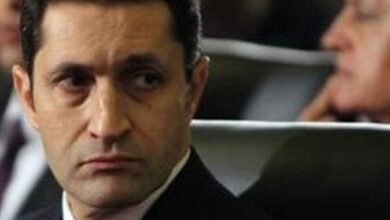Millions of Egyptians will be impatiently awaiting a glimpse of their de facto leader when he appears on Sunday to provide his account of the events that led to over 850 protesters being killed during Egypt’s 25 January uprising.
Last week Field Marshal Mohamed Tantawi, head of the ruling Supreme Council of the Armed Forces (SCAF), was summoned to testify in the trial of ousted President Hosni Mubarak.
Although Egyptians are anxious about Judge Ahmed Refaat’s decision on Wednesday to media forbid coverage of Tantawi’s and other key witnesses' testimonies throughout next week, they hope that the military leader’s testimony may return justice to its feet in a trial that has seen several witnesses for the prosecution recant earlier testimonies to deflect blame away from Mubarak and his top security aide, former Interior Minister Habib al-Adly.
Lawyer Sayed Fathy said that Tantawi will be asked: “What happened? Who was behind the decision to cut mobile and internet communications on 27 January 2011, and who gave the order to kill protesters?”
The armed forces were first deployed on Egypt’s streets on the evening of 28 January, three days into the mass pro-democracy protests, and the SCAF officially assumed responsibility for running the country when Mubarak stepped down on 11 February.
Director of the Egyptian Organization for Human Rights Hafez Abu Seada suggested that Tantawi and Samy Anan, the military’s chief of staff, will be questioned about Mubarak's 28 January orders to the armed forces on how to deal with protesters.
Their responses, Abu Seada said, would be crucial to establish Mubarak’s guilt.
“Were there orders to use force against protesters? If there were orders from the head of the armed forces to use force against protesters and disperse demonstrations, and if these orders weren’t carried out, this will establish Mubarak’s guilt,” Abu Seada said.
“If, however, the orders were just to protect citizens, Mubarak will be found innocent and the Interior Ministry will shoulder the guilt entirely.”
In May, Tantawi said during a televised graduation ceremony at the Police Academy that the armed forces had refused to open fire on protesters.
"I think [Tantawi's] testimony will prove that Mubarak was involved and aware of the killing of protesters," said Mohamed Zarea, a lawyer representing 500 of those injured or killed during the uprising.
If Tantawi tells the court that he was asked to mobilize the armed forces to crush the protests, Zarea explained, “this will imply that that the same request was addressed to the Interior Ministry earlier."
The 74-year-old Tantawi has been traditionally considered a Mubarak loyalist. Defense minister since 1991 – the longest serving defense minister in Egypt’s modern history – Tantawi had to take sides during the revolution and finally stood behind the people's demands, forcing Mubarak to step down amid fear that the country might slip into total chaos.
According to the Egyptian penal code, Mubarak could face the death penalty if convicted of “incitement to kill protesters", but some legal experts argue that the court could reduce the sentence to life imprisonment because of the 83-year-old's advanced age.
To be summoned for testimony along with Tantawi and Anan are former intelligence chief Omar Suleiman on Tuesday, Interior Minister Mansour al-Essawy on Wednesday, and former Interior Minister Mahmoud Wagdy on Thursday.
Of them, only Suleiman testified to the public prosecution ahead of the trial, when he was questioned about police killing protesters on 28 January.
Additional reporting by Noha El-Hennawy.




